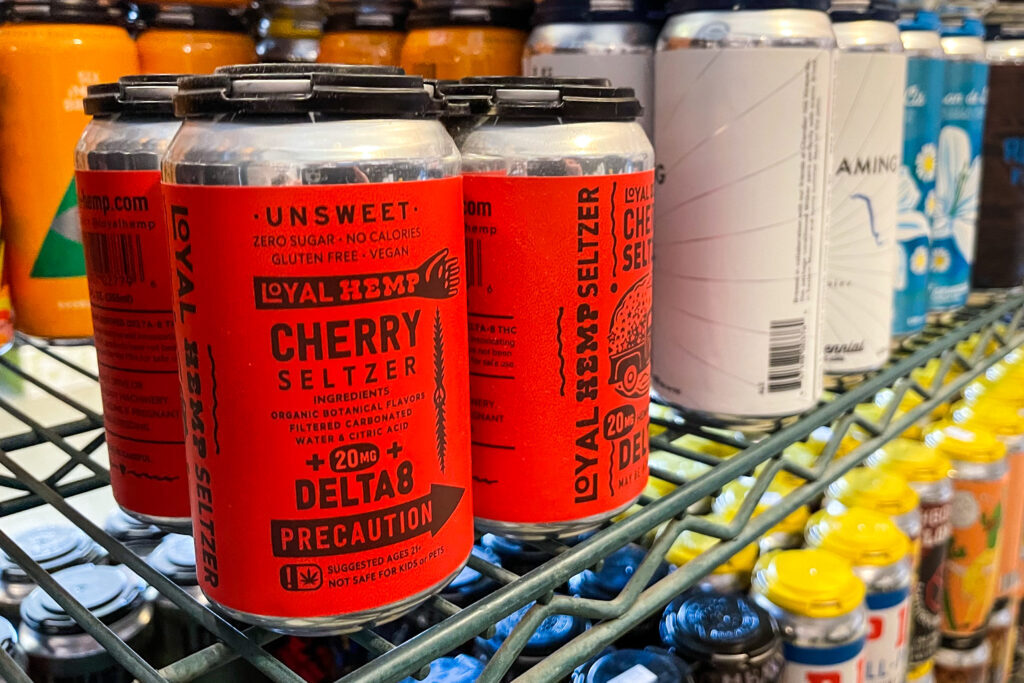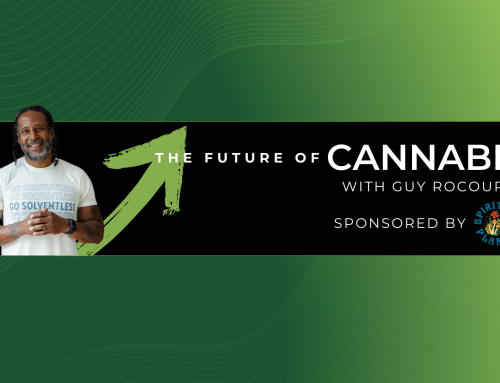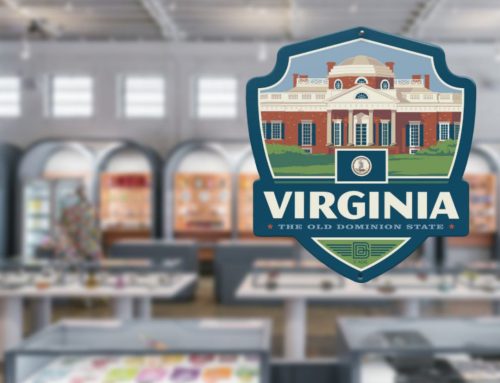The Hemp Surge: A Growing Challenge to Regulated Cannabis
NEW YORK — The legal line between hemp and cannabis in the U.S., drawn by the 2018 Farm Bill, was meant to clarify regulation. Instead, it created a set of inconsistencies that still affect how businesses operate, how laws are enforced, and how states build cannabis policy.
While licensed cannabis businesses deal with strict systems of permits, taxes, and product testing, hemp-derived THC products have quickly entered retail markets under more relaxed rules. In states like Missouri and Texas, hemp-based products now exist as a separate economy often competing directly with the state’s licensed cannabis industry.
This article looks at three overlapping factors behind the current tension: uneven rules between hemp and cannabis, a lack of clear federal policy, and the fast growth of a new market for intoxicating cannabinoids that operates outside traditional regulatory systems. Together, these forces are changing how the cannabis industry is structured and how regulators and businesses respond.
Regulatory Asymmetry Between Hemp and Cannabis
Federal law defines hemp as cannabis with less than 0.3% delta-9 THC by dry weight. But it doesn’t limit the creation or sale of other cannabinoids like delta-8 THC, delta-10 THC, or HHC if they come from legal hemp.
This legal gap has allowed a wide range of psychoactive products to enter the market without needing the same licenses, safety checks, taxes, or distribution rules that apply to regulated cannabis. As a result, there are now two very different markets: one with strict oversight and costs, and one with far fewer rules and wider access.
More recently, this divide has grown into something larger—a new intoxicating cannabinoids market. It sits outside both the traditional hemp and cannabis sectors. It’s not defined by plant type, but by how the product works, what consumers want, and where the law doesn’t yet keep up.
For example, In Missouri, hemp-derived THC products are available in gas stations and corner stores, giving people access outside the licensed dispensary system. In Texas, where adult-use cannabis is still banned, hemp products are filling that gap. They’re easier to get, often cheaper, and don’t follow the same rules cannabis businesses must meet.
This uneven setup creates commercial pressure—especially where legal cannabis operators are already dealing with high costs, strict oversight, and falling margins. It also raises questions for regulators and policy experts about how to respond and where action is most likely to happen next.
Federal Ambiguity as a Structuring Variable
On the federal level, cannabis is still classified as a Schedule I drug. Hemp, under the Farm Bill, is legal. This has created a strange situation: if a product gets you high but comes from hemp, it might be sold legally across the country even though cannabis with similar effects is still restricted under federal law.
There’s no clear federal policy yet on how to handle cannabinoids that are made or converted from hemp. That’s led to mixed enforcement and different rules from state to state. Some states have banned or regulated hemp-derived THC. Others haven’t acted at all, giving businesses room to grow in a mostly unregulated space.
Until federal agencies provide clearer direction—through new laws, rules, or enforcement—this divide between hemp and cannabis will keep causing confusion and market instability. For professionals in government relations, this unclear space is both a challenge and a key area of focus. Tracking new bills, joining regulatory discussions, and building relationships with state agencies are ways to stay ahead.
State-Level Case Examples
Missouri shows how this imbalance plays out. The state has legal cannabis and licensed dispensaries, but also allows a fast-growing market of hemp-derived products, especially drinks with THC. These are sold outside the regulated system, while other forms like vapes and edibles remain under review.
Texas, which hasn’t legalized adult-use cannabis and offers only limited medical access, has seen hemp-derived THC products take on a similar role. Delta-8, HHC, and other cannabinoids are sold widely, often looking and feeling the same as traditional cannabis. Lawmakers have introduced restrictions, but their future is uncertain.
Florida operates a regulated medical cannabis system, but still has open retail circulation of hemp-based THC products. Legislation like SB 438 seeks to limit certain synthetic cannabinoids and set THC limits, but the broader retail system remains in place.
Georgia has moved quickly to update its hemp laws. By late 2024, it had introduced licensing, packaging rules, and age limits for delta-8 and similar products. But demand stays high—especially where access to medical cannabis is limited.
Tennessee passed HB 403, which requires licenses for all hemp-derived product sellers and adds taxes to products with THC. The law also treats THCA like delta-9 THC, changing how high-potency hemp products are regulated.
These examples show how different state responses are and how quickly hemp businesses can scale when the rules allow it, especially in places where cannabis operators face tighter limits.
Implications for Regulated Cannabis Operators
The rapid expansion of hemp-derived THC markets presents a direct challenge to the structure of regulated cannabis, extending beyond pricing dynamics.
Licensed operators are required to follow strict rules: testing, tracking, zoning, taxes. Hemp-derived products with similar effects often skip most of that. This creates competitive pressure for cannabis businesses and undermines the regulatory framework designed to ensure safety, traceability, and oversight.
Retailers report that many customers can’t tell the difference. Brands see price pressure from untaxed alternatives. And in some states, cannabis operators are competing directly with businesses playing by a completely different set of rules.
This situation creates urgent tasks for the industry:
- Track hemp-related legislation, especially where intoxicating cannabinoids are involved
- Collect data on pricing, substitution, and quality gaps to make a policy case for reform
- Collaborate with public health stakeholders to draw attention to the risks associated with unregulated products.
- Where possible under law, explore whether entering the hemp-derived market makes sense operationally
At the policy level, the difference between hemp and cannabis no longer clearly matches how products work or how people use them. Regulators and businesses need to start adjusting to how the market actually functions, not just how it’s defined on paper.
Conclusion
The rise of high-THC hemp-derived products under relatively relaxed legal conditions shows a deep imbalance in how cannabis and hemp are currently regulated. While cannabis businesses operate under strict rules and political pressure, hemp-based markets have grown quickly with fewer requirements, creating an uneven playing field.
For cannabis operators, this signals a fundamental shift in the definition, distribution, and regulation of intoxicating cannabinoids. What’s emerging is a separate category—a growing intoxicating cannabinoids market—that doesn’t fully belong to either hemp or cannabis and is starting to change how the entire industry works.
Without a clear and coordinated response from federal or state policymakers, the licensed cannabis sector will remain in a fragmented system. And that system will increasingly be shaped not by regulation, but by how fast and flexibly this parallel hemp-driven market can move under a different set of rules.
Author Jeff Guillot
Copyright Highly Capitalized Network and MAD Global Strategy © 2025. All rights reserved.
Thank you to MAD Global Strategy and Jeff Guillot for collaborating on this article.
Jeff Guillot is a seasoned strategist in government relations, policy, and regulatory affairs, with a sharp focus on the cannabis industry. As Managing Partner at MAD Global Strategy, he collaborates with federal, state, and local governments to craft regulatory environments that support both business growth and community impact.
His expertise covers emerging technologies, sustainability initiatives, land use policy, cannabis regulation, and the inner workings of state and local governance. Jeff’s public sector experience includes roles with U.S. Congressman Gary Ackerman, the New York City Council, and as Legislative Director for Assemblyman Richard Brodsky in the New York State Assembly.
To learn more about how government relations can support your cannabis business, contact Jeff Guillot via email [email protected].




































